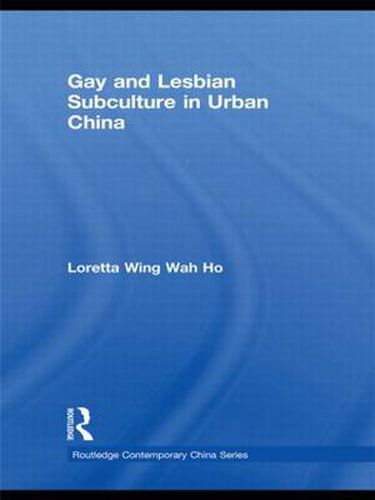Readings Newsletter
Become a Readings Member to make your shopping experience even easier.
Sign in or sign up for free!
You’re not far away from qualifying for FREE standard shipping within Australia
You’ve qualified for FREE standard shipping within Australia
The cart is loading…






This book contributes to a critical understanding of how Chinese same-sex identity in urban China is variously imagined; how it is transformed; and how it presents its resistances as China continues to open up to global power relations. Equally important, the book will 1) sharpen knowledge of China’s recent socio-economic change and political agenda, 2) build a greater awareness of Chinese cultural, sexual and ethical values and 3) offer new perspectives on ‘Chineseness’ and Chinese same-sex identity.
Uniquely, it explores the emergence of Chinese same-sex identity through understanding the everyday, lived same-sex experience, amid China’s opening up to cultural, sexual and economic globalisation. This understanding is based on a culturally sensitive framework which accommodates the diverse and sometimes paradoxical articulation of same-sex identity in urban China. It come sto the conclusion that same-sex identity in china is articulated in a paradoxical way: open and decentred, but at the same time, nationalist and conforming to state control.
This book will be of interest to scholar and students in Chinese studies, Gender Studies, sexuality and cultural studies.
$9.00 standard shipping within Australia
FREE standard shipping within Australia for orders over $100.00
Express & International shipping calculated at checkout
This book contributes to a critical understanding of how Chinese same-sex identity in urban China is variously imagined; how it is transformed; and how it presents its resistances as China continues to open up to global power relations. Equally important, the book will 1) sharpen knowledge of China’s recent socio-economic change and political agenda, 2) build a greater awareness of Chinese cultural, sexual and ethical values and 3) offer new perspectives on ‘Chineseness’ and Chinese same-sex identity.
Uniquely, it explores the emergence of Chinese same-sex identity through understanding the everyday, lived same-sex experience, amid China’s opening up to cultural, sexual and economic globalisation. This understanding is based on a culturally sensitive framework which accommodates the diverse and sometimes paradoxical articulation of same-sex identity in urban China. It come sto the conclusion that same-sex identity in china is articulated in a paradoxical way: open and decentred, but at the same time, nationalist and conforming to state control.
This book will be of interest to scholar and students in Chinese studies, Gender Studies, sexuality and cultural studies.